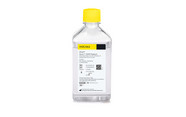FDA Warning Letters: April 2024 Edition
What’s been cited in recent Warning Letters? Production records written using erasable markers, use of expired raw materials, and many instances of drugs that shouldn’t be sold on the internet
Stephanie Vine | | 6 min read

Wiping the slate clean?
During an FDA inspection, India-based company S&J International Enterprises Public Company “delayed or limited access to or copying of records requested.” For example, after requesting to see the current labeling on US drug products produced at the facility, an FDA investigator was eventually presented with a single, poor quality photo on the last day of the inspection that was not legible.
In addition, the letter says: “upon request for a list of all laboratory non-conformances and investigations during the inspection, your staff initially stated that there were no out-of-trend, out-of-specification (OOS), incidents, non-conformances, or investigations, and provided blank logs for years 2021-2023. However, later during the inspection, our investigator observed logs for these years on an electronic drive that contained non-conformance report numbers, dates, descriptions, and close-out dates, and appeared to include a raw material OOS entry for (b)(4), the active ingredient in your U.S. drug product. Only after discovery by our investigator were these logs provided to our investigator.”
The company was also found to be using erasable markers and laminated sheets for recording production data, including cleaning, verification checks, equipment checks, and so on.
Failure to test
OTC drug manufacturer Colgin in Dallas, Texas, received a Form 482 in 2023, but its response was deemed inadequate, resulting in a warning letter. Among other issues, the company has not been testing incoming components before manufacturing its analgesic drug product. The company was also found to have used expired raw materials.
Bell International Laboratories in Lexington, Kentucky, also received a warning letter that mentioned testing, among other quality issues. The company has not been testing glycerin for diethylene glycol (DEG) and ethylene glycol (EG), which can be toxic. DEG and EG contaminated medicines from other companies have resulted in fatal poisoning incidents across the globe.
It’s all in your head
Sichuan Deebio Pharmaceutical was pulled up in a warning letter for cGMP violations, including failure to ensure the integrity of data from the QC microbiology lab. “ Specifically, our investigators observed that numerous microbiological plates supporting (b)(4), USP API production operations were not read and recorded contemporaneously. After investigators found microbiological plates in a waste bin, QC personnel provided conflicting information as to whether results had been read and recorded on laboratory worksheets following established procedures,” says the letter.
QC personnel claimed to have not written the information yet and that it was in their heads.
Clinical study dosing error
A more unusual type of warning letter; Jeffrey W. Taub from the Children’s Hospital of Michigan received a warning letter for conduct during a clinical study. The letter claims that Taub put a pediatric subject receiving additional doses outside of the investigation protocol at an increased risk of toxicities. Although the subject was closely observed afterwards – and action has since been taken to prevent reoccurrence – the FDA was still concerned. “While we acknowledge the corrective and preventive actions that your site has taken and plans to take, your response is inadequate because you did not include sufficient details about your corrective action plan. For example, you did not provide sufficient details about the policies and procedures that you would institute at your site to ensure compliance with study protocols and to ensure that ongoing and future clinical investigations will be conducted in compliance with applicable FDA regulations. Additionally, given the significance of the protocol violation involving a pediatric subject, we request follow-up documentation regarding the policies and procedures being implemented at your site to ensure compliance with study protocols, including randomization assignments.”
Poop for sale
Human Microbes, based in California, received a warning letter for selling fecal microbiota for transplantation (FMT) as capsules, enemas, and infusions directly to patients. The company’s products have most definitely not been approved by the FDA, but were being promoted to treat a variety of conditions. The FDA noted a YouTube video titled, “We want your poop” that said “FMTs offer a potential new treatment option for a long list of conditions […]including irritable bowel syndrome, obesity and even mental disorders.” The video also claimed that a patient had been cured of bipolar disorder after an FMT.
Jumping on the weight loss wagon
Huge demand for semaglutide and tirzepatide is seeing unscrupulous players looking to take advantage. The FDA has issued warnings to US Chem Labs and Synthetix (both located in the US) for selling semaglutide and tirzepatide (among other products). The companies attempt to claim the products as being for research purposes only, but the FDA believes they were intended for human consumption. US Chem Labs was also marketing Thymalin for use in children. “Your product has not been evaluated by FDA for safety, effectiveness, and quality. The use of untested drugs can have unpredictable and unintended consequences, especially in vulnerable populations such as children and infants who may be at greater risk for adverse reactions associated with certain drug products due to differences in the ability of children to absorb, metabolize, distribute, or excrete such drug products or their metabolites.”
The usual nonsense
A number of companies have also been reprimanded for selling unapproved products online. Skull Smash LLC in the US received a warning letter concerning a number of ammonia-containing products. The letter says, “The FDA is not aware of any adequate and well-controlled clinical trials in the published literature that support a determination that ‘SKULL SMASH Ammonia Inhalant,’ ‘BADASS Bitch,’ ‘DOUBLE BARREL Ammonia Inhalant,’ and ‘SILVER BULLET Ammonia Inhalants’ are GRASE [generally recognized as safe and effective] for use under the conditions prescribed, recommended, or suggested in their labeling. Moreover, there is no evident basis under the FD&C Act under which these products would be legally marketed without an approved application.”
Also in the US, Spirochaete Research Labs was warned for its own range of uniquely named smelling salts, including Atomic Rhino, Red Line Atomic Rhino, and Megaton Atomic Rhino, and Innovative Formulations was pulled up for its WAKE THE DEAD SMELLING SALTS.
And finally… Cats
Even established companies can slip up. In March, big pharma company Boehringer Ingelheim received a warning letter for promotional communications around its veterinary medicine Senvelgo. The FDA says the claims were false or misleading. Product labeling says that Senvelgo can only be used in otherwise healthy diabetic cats that have not been previously treated with insulin. The promotional materials, however, say that the drug: “Demonstrated excellent efficacy and safety in multiple pivotal clinical field trials featuring over 300 insulin-naive, previously insulin-treated, and otherwise healthy diabetic cats.”

Making great scientific magazines isn’t just about delivering knowledge and high quality content; it’s also about packaging these in the right words to ensure that someone is truly inspired by a topic. My passion is ensuring that our authors’ expertise is presented as a seamless and enjoyable reading experience, whether in print, in digital or on social media. I’ve spent fourteen years writing and editing features for scientific and manufacturing publications, and in making this content engaging and accessible without sacrificing its scientific integrity. There is nothing better than a magazine with great content that feels great to read.


















